- Forum
- categories
- Markets, finance and governance
- Sanitation as a business and business models
- Mongolia's project 'Let's change our toilets' continues focusing on UDDT.
Mongolia's project 'Let's change our toilets' continues focusing on UDDT.
50.9k views
Re: Mongolia's project 'Let's change our toilets' continues focusing on UDDT.
The beneficiaries of the project "Let's change our toilets" have been off-grid, Ger area, low-income residents of Mongolia. Please find the project's 4 years summary and some photos of change in the attachment.
I am happy to continue this project along with my committed team members and your thoughts, comments, advices and supports Executive Summary of the project Let's Change Our Toilets.pdf[/attachment] are always welcome!
Oyungerel Tsedevdamba
Ulaanbaatar.
Please log in or register to see it.
Leading a movement "Let's Change Our Toilets" in Mongolia.
This message has an attachment file.
Please log in or register to see it.
Please Log in to join the conversation.
You need to login to replywww.facebook.com/watch/?v=2582463688674861
Oyungerel
Leading a movement "Let's Change Our Toilets" in Mongolia.
Please Log in to join the conversation.
You need to login to replyThank you for your questions and comments. Please find my answers below:
Q: Has anyone tried ArborLoos there?
A: not yet.
Q: How biodegradable are these "biodegradable plastic bags"? I suspect that microscopic plastic particles may remain.
A: We buy the most biodegradable bag we can find from the closest market - China. So far, it has been good, and made of corns (100% bio and no petroleum product involved). However, we haven't done any research on the plastic particles that may remain in environment. We chose this product to help overcome prejudice against cleaning toilets, and it is playing this role very well.
Q: They also create permanent dependency on a factory that is likely not in Mongolia.
A: Indeed, we are importing it. Mongolia imports many many products overseas. This is one of them. We are not so afraid of trade, so, I guess buying something useful for environment is a good trade. Luckily, one family needs only one roll a year ($2.5)
Q: The polypropylene woven sacks that 100 pounds are flour, rice or potatos are sold in are stronger and cheaper, plus they can be used year after year.
A: One issue with the toilet bags is that Mongolians are culturally not yet ready to re-use bags that were once or twice filled with feces. So, for the time being, we chose one-time-use biodegradable bags. Without making it easy to clean dry toilets, it is very difficult to change toilets at all, in our culture.
Q: Sawdust requires sourcing and transport. Have you tried soil? It is more widely available and would not require transport and inoculates the feces with the right microbes to break them down.
A: No, we haven't tried soil yet. But we encourage our users to get the biomass in their local areas and use all kinds of sources including top soil. In our case, a family uses one bag of sawdust for a month or two. Such bags can be carried by hand, doesn't require much transportation. Families don't need to accumulate too much sawdust in their homes, they can purchase it from the same company that is selling biodegradable bags and dry toilets. We also encourage the users to get free sawdust or bio mass in their local areas, and even use dried cow dung (so much available in countryside)and topsoil.
In below pictures you can see 1) a biomass being enriched by local bacteria and prepared for Ulaanbaatar market by TJNR company; 2) A Muren (800km away from Ulaanbaatar) family using local biomass in her area.
Thank you again for your questions.
Leading a movement "Let's Change Our Toilets" in Mongolia.
Attachments:
-
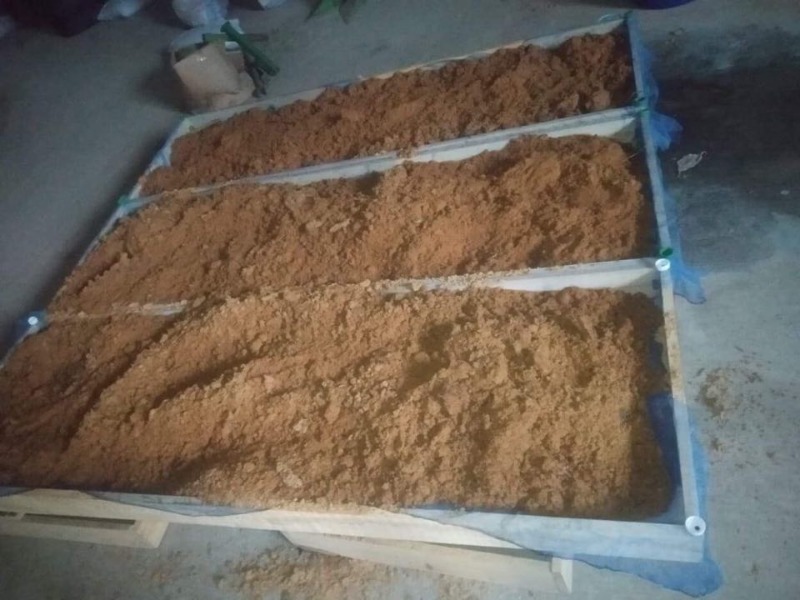 productdev...mass.jpg
(Filesize: 107KB)
productdev...mass.jpg
(Filesize: 107KB)
-
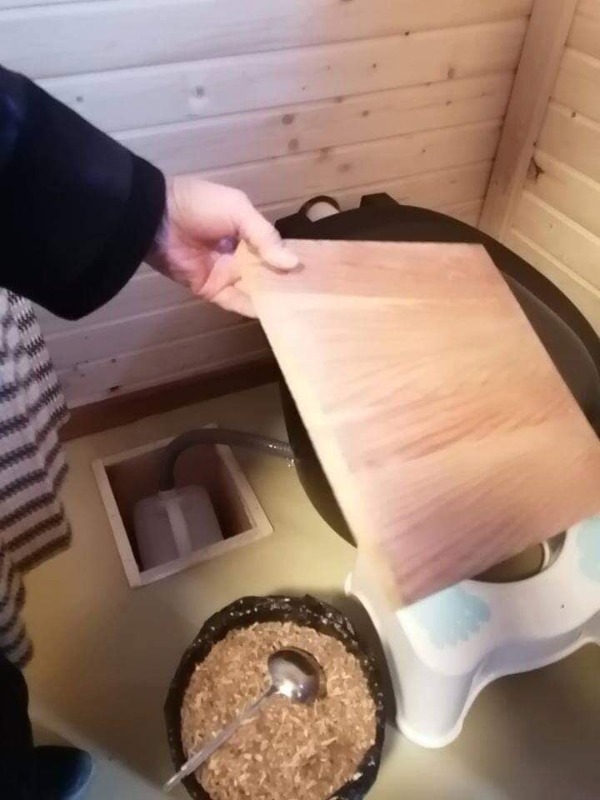 productdev...er-3.jpg
(Filesize: 79KB)
productdev...er-3.jpg
(Filesize: 79KB)
Please Log in to join the conversation.
You need to login to replyI congratulate you on your work on toilets in Mongolia. I work on Ecological Sanitation in Ecuador and I post some of my experiences on www.inodoroseco.blogspot.com (in English and Spanish). If I can ever be of any help with ideas for your project in Mongolia, that would be a pleasure.
Has anyone tried ArborLoos there? I think this could be good, because:
--there is not a deep, dangerous pit
--nutrients go straight to trees
--no one has to ever handle or transport the excrement
--the structure can as be as elegant (and warm) as we like, as long as it is lightweight.
🌳🌳🌳🌳🌳🌳🌳🌳🌳🌳🌳🌳🌳🌳🌳🌳🏡
I have some questions and comments about your current system:
--How biodegradable are these "biodegradable plastic bags"? I suspect that microscopic plastic particles may remain. They also create permanent dependency on a factory that is likely not in Mongolia. The polypropylene woven sacks that 100 pounds are flour, rice or potatos are sold in are stronger and cheaper, plus they can be used year after year (as long as they are not exposed to solar UV).
--Sawdust requires sourcing and transport. Have you tried soil ? It is more widely available and would not require transport, plus it inoculates the feces with the right microbes to break them down (especially if we recycle the soil, after a prudent amount of time of drying and decomposition).
--What do you think of building UDDTs in Mongolia, with recycled or readily available materials, especially as the project moves onto a bigger scale?
Best wishes.
Chris Canaday
Omaere Ethnobotanical Park
Puyo, Pastaza, Ecuador, South America
inodoroseco.blogspot.com
Please Log in to join the conversation.
You need to login to replyWe in Ulaanbaatar are inspired by several responses following my recent post at this forum including the link to the NHK Direct Talk program that featured our project "Let's Change Our Toilets". As we received requests to share about our experiences on leading the campaign, I am happy to share another video this time.
Please find our video report that we produced for our public reporting event on the World Toilet Day -2019. As you can see from the video, in order to change one item 'toilet' in our lives, we are undertaking a whole range of activities that involve multiple stakeholders from many sectors.
Please enjoy our video with help of its English subtitles:
Oyungerel.
Leading a movement "Let's Change Our Toilets" in Mongolia.
Please Log in to join the conversation.
You need to login to replyMongolia's toilet changing campaign was recently featured by a Japanese TV program "Direct Talk". Please find this program on this link to understand some features of our work, especially the dry toilet that is installed indoors:
www3.nhk.or.jp/nhkworld/en/ondemand/video/2058585/
We are looking for supporters for our campaign in 2020. Those who are interested in working with us, please write me to This email address is being protected from spambots. You need JavaScript enabled to view it.
Thank you!
Oyungerel
Leading a movement "Let's Change Our Toilets" in Mongolia.
Please Log in to join the conversation.
You need to login to reply- Elisabeth
-
- User is blocked
- Freelance consultant since 2012
Less- Posts: 3372
- Karma: 54
- Likes received: 932
Re: UDDTs for public events in Mongolia
+++++++++++++++
Our advantage is that we already have organic waste sanitation and processing product. It is a bacterial fluid named “Tamir bio”. We tested in June and started producing our own bedding materials for customers beginning at September. Our bedding materials had success among our customers, and we are hoping it will be used not only with Biolan, but also with the traditional open-pit toilets.
What is our goal? We are aspiring to construct self-sustainable business. It may not be profitable today. But our operation will grow with each sold Biolan waterless toilet and with each bedding material we sell. As you can see, our operation spans two companies and three products, which aid each others’ sales and operations. Companies in question are TJN Recycling and TJN. TJN is responsible for all the production, while TJN Recycling is responsible for sales and service operations.
What do we do? TJN Recycling gathers solid waste each fortnight from our Biolan waterless toilet users/customers. Right now, out of 50 homes that use Biolan waterless toilet in Ulaanbaatar city, we have only 3-4 homes that volunteered for the gathering services. Therefore service job load is low. But all of our team is participating to keep our service stable.
What we do with the waste?: As you may know, Biolan toilet separates fluid from soild waste. It serves good for composting purposes. We gather soild waste in special container and take them into the TJN processing site, which is located at the outskirts of Ulaanbaatar city. Solid waste is processed using our Tamir bio product for 4 to 9 weeks depending on weather conditions and amount of bedding material used. Our composting test started in August. Solid waste is being added to the composter and first of our compost had been emptied. The compost will be used for tree-planting and gardening etc,. This is a short description of the process.
TJN has experience with composting, and had been composting with animal waste since 2011. This composting process is quite simple, doesn’t require any elaborate machinery and takes less time for the product to fully compost - about 4 to 6 weeks.
However, there are not enough material for human waste composting to become self-sustainable right now. Our estimation is that 1 kilogram of fully composted product, we will sell at 1000 MNT (0.4 USD), same as animal waste compost. We are saving on our operations and it helps that our production site produces other ingredients for composting.
But for composting business to become sustainable (granted that compost sales will remain constant), we need at least 200 tons of solid waste per year. For now, we will have to wait until Biolan waterless toilet becomes active usage for at least 2’000 homes in Ulaanbaatar and for each of them to provide us with at least 5kg of raw material each fortnight with schedule. This is an achievable goal. And we also hope to succeed in building the active business by end of 2020. Above numbers are an approximation. But I hope they build the picture.
Other opportunities? We are hoping Gobi desert forestation project will pick up pace. But we cannot rely on hopes right now. Therefore we will aim at Ulaanbaatar city as our main market.
At some point, we will improve our product further and compress our compost into tablets for easier transportation and use. But this is not on our immediate agenda. Also, alternatively, we could add animal waste to fill the product, but we have not discussed such opportunities yet.
+++++++++++
Regards,
Elisabeth
Freelance consultant on environmental and climate projects
Please Log in to join the conversation.
You need to login to reply- Elisabeth
-
- User is blocked
- Freelance consultant since 2012
Less- Posts: 3372
- Karma: 54
- Likes received: 932
Re: UDDTs for public events in Mongolia
Thanks for your detailed answers, much appreciated. This all sounds very good!
You wrote:
As to faeces, an Ulaanbaatar based company TJN Recycling is collecting bio degradable bags full of solid waste every 2 weeks from Biolan Simplett users and it is using the collected waste as a material to do compost for forestation.
Could you tell us more information about their business model, or encourage them to post here on the forum? Would love to know more about how they are making this work in practical and financial terms.
Thanks,
Elisabeth
Freelance consultant on environmental and climate projects
Please Log in to join the conversation.
You need to login to replyQ: Your photos look really interesting. Seems like only the ladies had to queue up though, not the men?
A: We separately placed men's urinals. Men used the seating toilets in the blue tent only if they needed to poo. The men's urinals in our pictures are shown as a row of white curtains with hay bales inside. In some occasions, we used male urinals behind those white curtains.
Q: Could you please show us also a photo of the Biolan Simplett pedestal or pan up close? So far I have only seen the cubicles from the outside.
A: I am attaching them here.
Q: What did you do with the collected feces and urine? What's in the plastic bags in the first photo, is that the content of a toilet bucket, i.e. faeces and toilet paper?
A: So far, we are not collecting urine. Instead, urine is going to a grey water treatment system, or directly to ground through 40cm layer of sawdust, or to a infrastructure pipe (if collected in a container). As to faeces, an Ulaanbaatar based company TJN Recycling is collecting bio degradable bags full of solid waste every 2 weeks from Biolan Simplett users and it is using the collected waste as a material to do compost for forestation. In other towns and countryside, faeces with bio degradable bags are buried in a hole that is located away from water sources. Bags in our photos are bio degradable bags. We chose to use such bags to make it easy to clean the dry toilet. It takes 10-30 seconds to collect the bag when it is filled.
Q: Were your toilets the only choice the visitors to the festival had or were yours an add-on, together with the more conventional toilets?
A: Our toilets were one of three choices of available toilets at the festival. The other two choices were water closets connected to city infrastructure, and mobile empty-able plastic toilets. But our toilets were most popular among the participants because they were much cleaner. We had many volunteers to clean the toilets much more often. With lots of instructions how to use the toilets, minimal cleaning was needed.
Q; Who paid whom? I assume the festival organizers paid you for providing this toilet service. Was it more or less expensive for them than conventional toilet (like those chemical toilets)?
A: Festival organizers paid to Mini Solutions cooperative. However, it wasn't enough to run the toilets, so Local Solutions sponsored half of the expenses to reach youth via this festival. Our toilets were offered for free to the users, while the other two toilets were offered at 300 tugriks (12 cents).
Q: The users were OK with just having curtains for privacy, no doors? (for the urinals it's easy but for the toilets?)
A: Tend curtain doors had locking buttons. So, most users used the 'locks' while some users didn't use the locking. Users were actually much happier to use curtain doors than wooden doors in traditional toilets. Tent-style curtain doors and tents themselves created cozy environment and users thanked with thumbs up very often.
Leading a movement "Let's Change Our Toilets" in Mongolia.
Attachments:
-
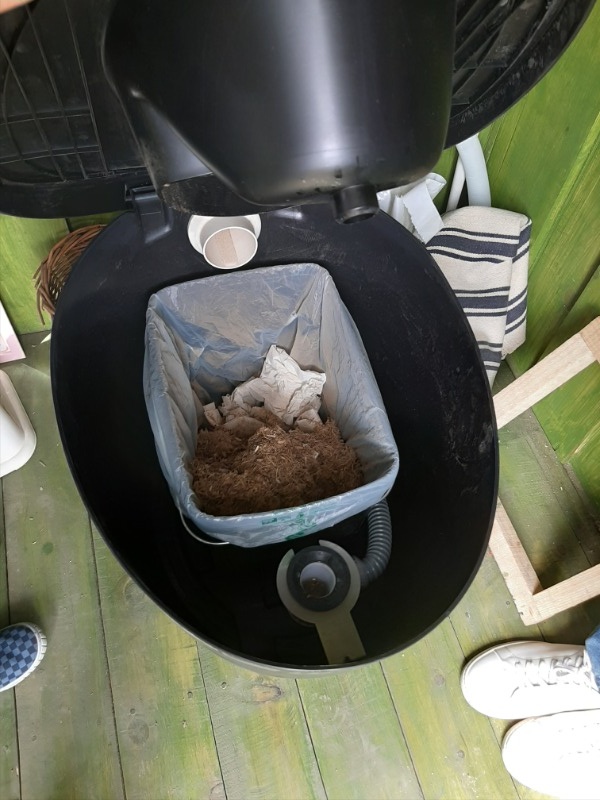 20190616_135902.jpg
(Filesize: 128KB)
20190616_135902.jpg
(Filesize: 128KB)
-
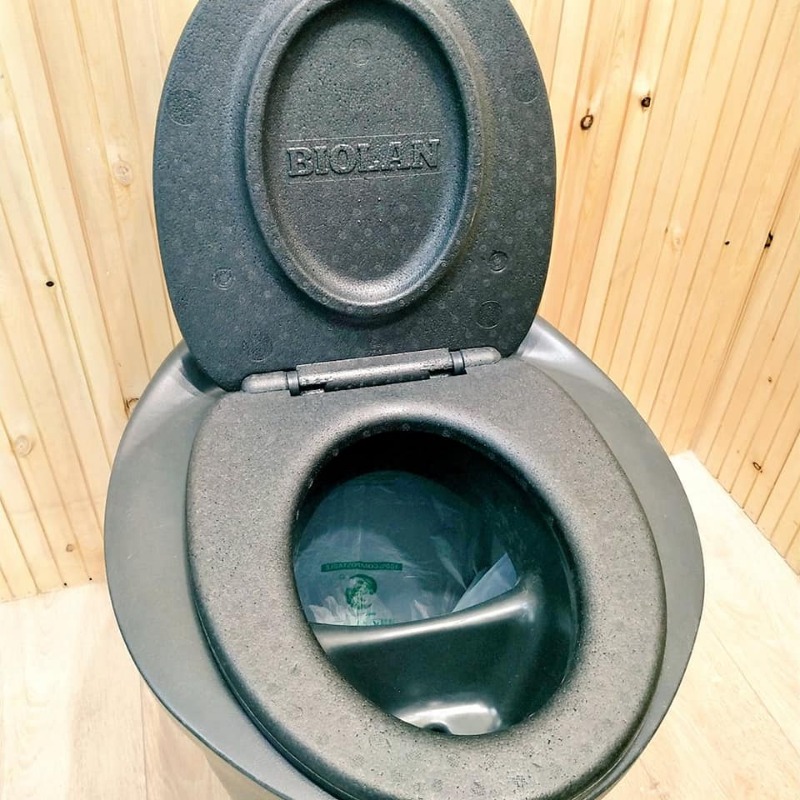 showroom-1.jpg
(Filesize: 171KB)
showroom-1.jpg
(Filesize: 171KB)
-
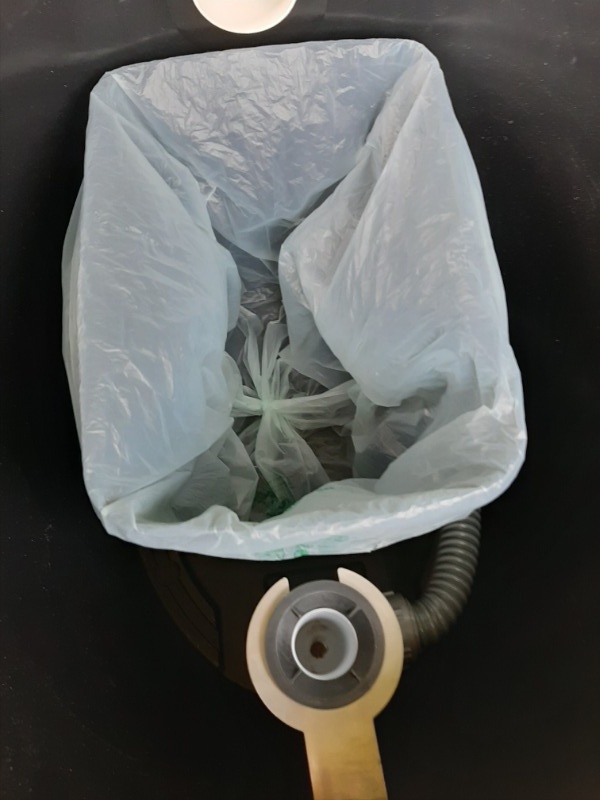 20190609_192211.jpg
(Filesize: 87KB)
20190609_192211.jpg
(Filesize: 87KB)
Please Log in to join the conversation.
You need to login to reply- Elisabeth
-
- User is blocked
- Freelance consultant since 2012
Less- Posts: 3372
- Karma: 54
- Likes received: 932
Re: UDDTs for public events in Mongolia
Thanks for this post (I have moved it into the existing thread to make it easier to understand the context). My questions and comments:
- Your photos look really interesting. Seems like only the ladies had to queue up though, not the men?
- Could you please show us also a photo of the Biolan Simplett pedestal or pan up close? So far I have only seen the cubicles from the outside.
- What did you do with the collected feces and urine? What's in the plastic bags in the first photo, is that the content of a toilet bucket, i.e. faeces and toilet paper?
- Were your toilets the only choice the visitors to the festival had or were yours an add-on, together with the more conventional toilets?
- Who paid whom? I assume the festival organisers paid you for providing this toilet service. Was it more or less expensive for them than conventional toilet (like those chemical toilets)?
- The users were OK with just having curtains for privacy, no doors? (for the urinals it's easy but for the toilets?)
Please do tell us more!
Regards,
Elisabeth
Freelance consultant on environmental and climate projects
Please Log in to join the conversation.
You need to login to replyThis time, our team, "Let's Change Our Toilets", tested Biolan Simplett (UDDT) in six local festivals including: Horse racing area of the National Naadam in Ulaanbaatar (serving 1K visitors), Bayankhongor province naadam (serving 4K), Gobi regional naadam (serving 8K), Khuvsgul regional horse racing naadam (serving 8K), Khuvsgul local small naadam(Serving 2K), an event in Zavkhan province (1K visitors) and Xuur Music Festival (serving 30K visitors). Local users are very satisfied with their experience of using comfortable dry toilets.
To make it easy to transport, erect and dismantle, all accessories and additional components to the toilets were locally pre-made from locally available materials. To control the crowd, male urinal places were separately erected under the address "See a horse"-- a folk expression of urinating while standing.
Cleaning and maintenance volunteers were trained before each event, and cleaning experiences were excellent except for very few. I myself cleaned and adjusted the toilets too, and it took very small amount of time to manage the waste. We thank bio degradable bags for making our cleaning experience super easy. The only tricky experience was too much rain during one of our event days and our urine management was challenging. Please look at some of our event toilets photos in the attachment.
Now our team is working on developing checklists, budget sample, and instructions for event toilet managers.
Leading a movement "Let's Change Our Toilets" in Mongolia.
Attachments:
-
 20190711_203843.jpg
(Filesize: 176KB)
20190711_203843.jpg
(Filesize: 176KB)
-
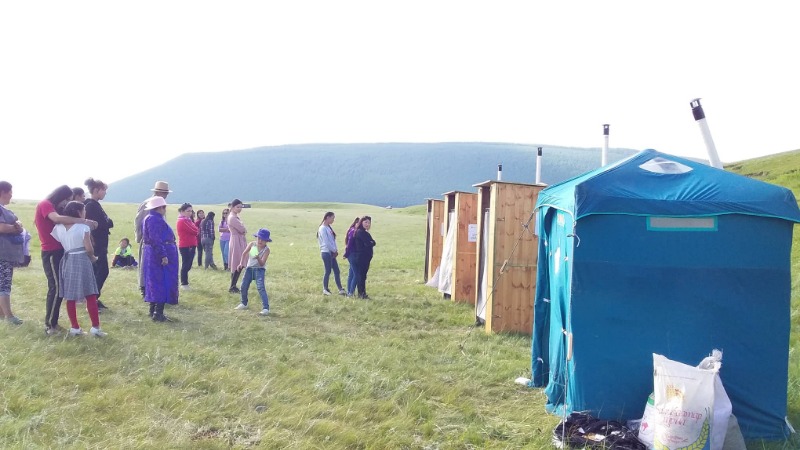 Darhadhurd-1.jpg
(Filesize: 92KB)
Darhadhurd-1.jpg
(Filesize: 92KB)
-
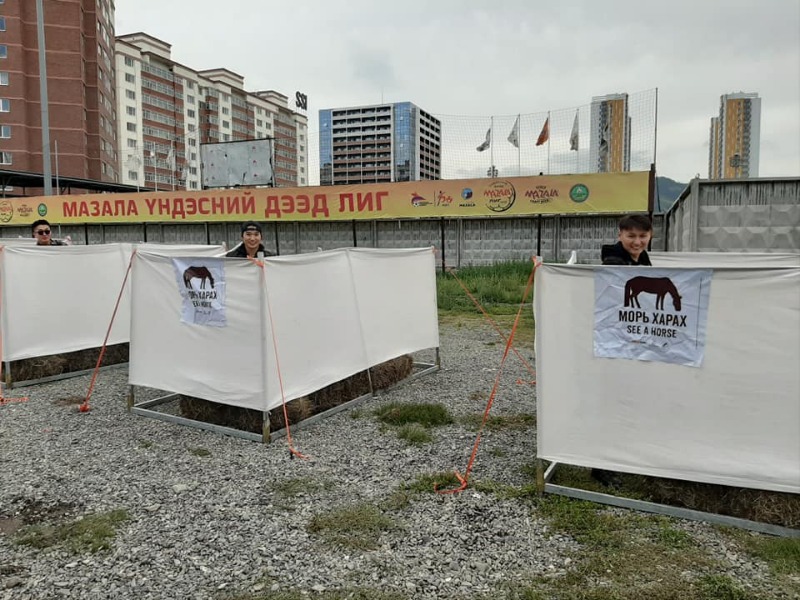 XMF2.jpg
(Filesize: 157KB)
XMF2.jpg
(Filesize: 157KB)
-
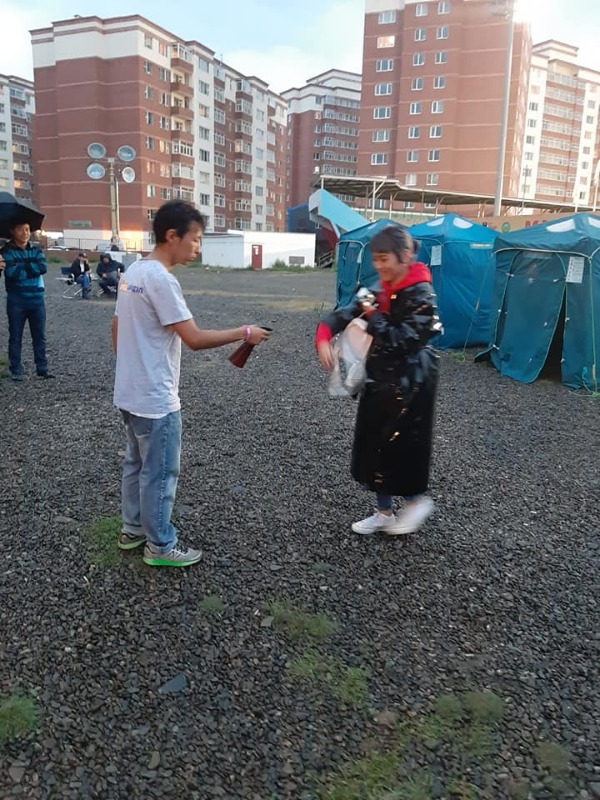 XMF3.jpg
(Filesize: 181KB)
XMF3.jpg
(Filesize: 181KB)
-
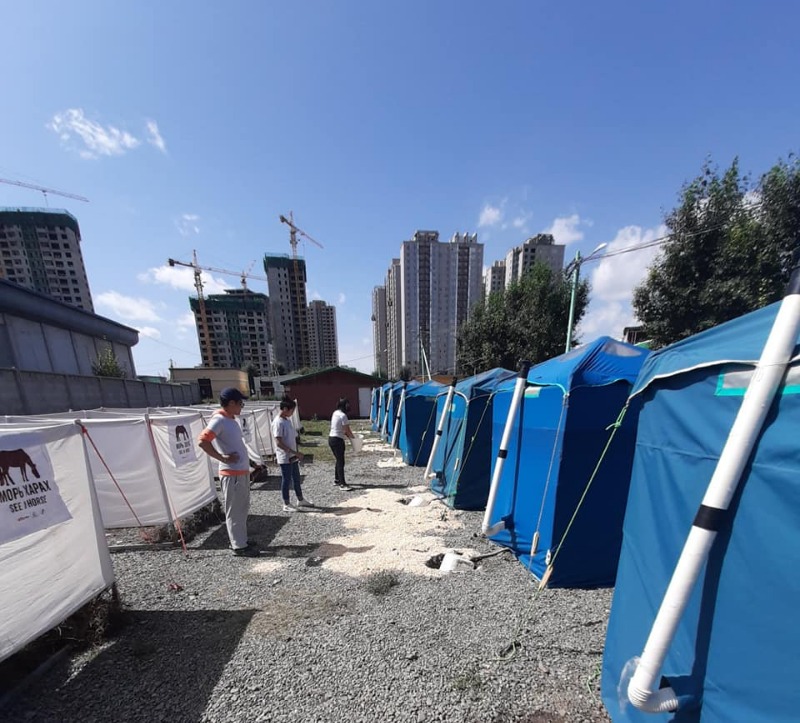 XMF5.jpg
(Filesize: 157KB)
XMF5.jpg
(Filesize: 157KB)
-
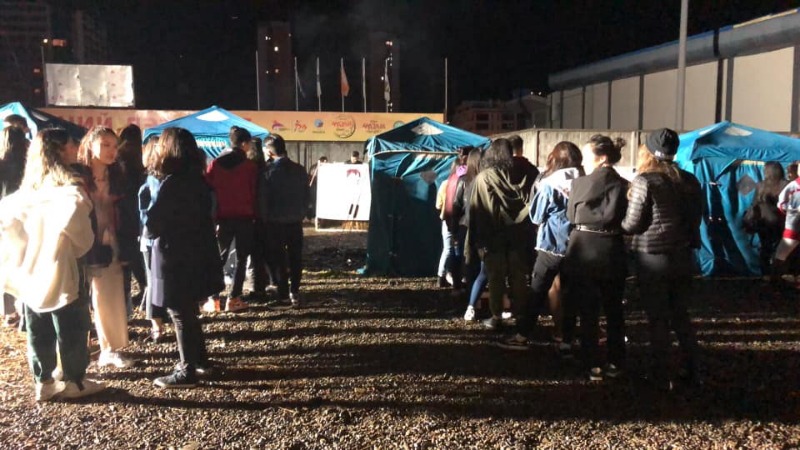 XMF8.jpg
(Filesize: 118KB)
XMF8.jpg
(Filesize: 118KB)
-
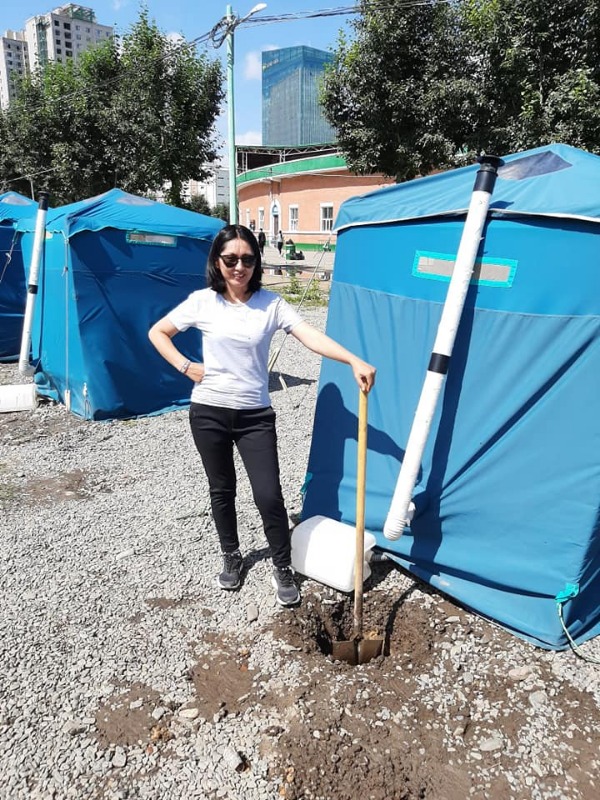 XMF6.jpg
(Filesize: 212KB)
XMF6.jpg
(Filesize: 212KB)
Please Log in to join the conversation.
You need to login to reply- Elisabeth
-
- User is blocked
- Freelance consultant since 2012
Less- Posts: 3372
- Karma: 54
- Likes received: 932
Re: Toilet Business Cluster is just being formed in Mongolia
www.jorlon.org/technology
Therefore, our team brought together several companies to choose a lightweight dry toilet model for women workforce so that the supply of toilets could significantly increase. Business partners of our campaign “Let’s Change Our Toilet” chose Biolan Simplett as the first product to test in the Mongolian market. It’s a dry bio toilet that can be installed indoors, and most importantly, this is a toilet that women can assemble, dismantle, clean, manage and sell them successfully.
-Biolan Simplett. Urine diverting dry toilet.
-Probiotic bacteria product TAMIR;
-Biodegradable bags
-Locally available biomass
-Collecting trucks and composting factory;
- decentralized composting in yards and Biolan Composters;
- urine harvesting for fertilizer;
- An app for toilet product salespersons and users;
Regards,
Elisabeth
Freelance consultant on environmental and climate projects
Please Log in to join the conversation.
You need to login to reply- Forum
- categories
- Markets, finance and governance
- Sanitation as a business and business models
- Mongolia's project 'Let's change our toilets' continues focusing on UDDT.








